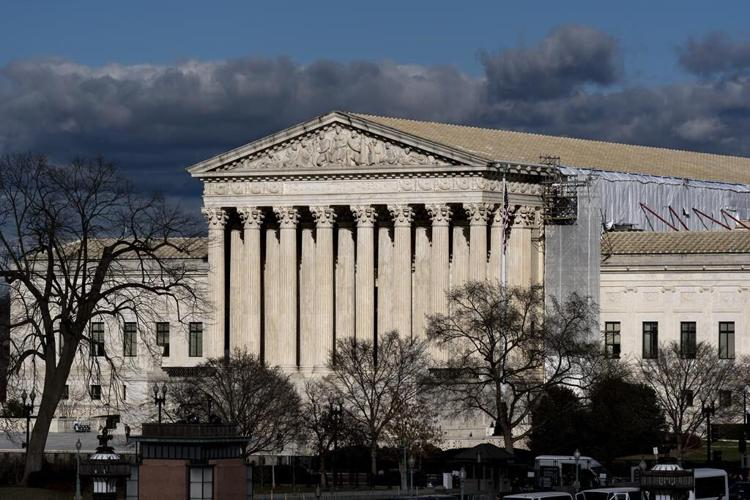
AP File/ Scott Applewhite Photo
Conservative justices on the Supreme Court expressed doubt on Wednesday regarding whether state abortion bans, implemented after Roe v. Wade was overturned, violate federal health care law. However, they also raised concerns about the impact of such bans on emergency care for pregnant patients.
This case is significant as it's the first time the Supreme Court is deliberating on the consequences of a state ban following the reversal of the national abortion right. The case originates from Idaho, one of 14 states with bans on abortion at all stages of pregnancy, with only very limited exceptions.
The court had previously permitted Idaho's ban to take effect, even in cases of medical emergencies. It remains uncertain whether the conservative majority members were influenced by the Biden administration's argument that federal law supersedes state law in rare emergency scenarios where a pregnant patient's health is seriously jeopardized.
This closely watched case examines the court's stance on creating exceptions to state abortion bans. The ruling, anticipated by late June, will also impact a similar case in Texas and could have broader implications amidst reports of pregnant women being denied emergency room care following the Roe v. Wade reversal.
The Biden administration asserts that abortion care should be permitted in such instances under a law mandating hospitals accepting Medicare to provide emergency care, irrespective of patients' ability to pay.
Justice Samuel Alito, who authored the Roe v. Wade reversal, appeared skeptical. He questioned how restrictions on Idaho's criminalization powers could be imposed simply because hospitals in the state participate in Medicare.
Idaho argues that its ban includes exceptions for life-saving abortions, while the administration contends that expanding the times when hospitals can refuse care would effectively turn them into "abortion enclaves."
Liberal justices highlighted cases where pregnant women faced severe consequences after being denied or delayed abortion care in states with bans.
Conservative Justice Amy Coney Barrett expressed surprise when an attorney for Idaho seemed hesitant about allowing abortions in critical cases. Attorney Joshua N. Turner stated that doctors could use their medical judgment under Idaho's life-saving exception, but Barrett persisted with questioning.
Turner acknowledged that a doctor could face criminal charges in such situations. Performing an abortion outside of limited exceptions in Idaho is punishable by up to five years in prison.
Most Republican-led states have enforced new bans or restrictions since Roe was overturned, and Turner noted that these laws have narrower exceptions than federal law.
Doctors have reported that Idaho's abortion ban has impacted emergency care, leading to more women needing out-of-state treatment. Abortion opponents argue that the Biden administration exaggerates healthcare issues to undermine state abortion laws.
The justices also heard another abortion case this term concerning restrictions on abortion medication. The outcome remains pending, although the justices appeared skeptical of the proposed restrictions.
The Justice Department initiated the case against Idaho, asserting that the state's abortion law contradicts the Emergency Medical Treatment and Active Labor Act of 1986. This act mandates hospitals accepting Medicare to provide emergency care to all patients, regardless of their ability to pay.
While the court proceedings saw a sparse audience inside, outside the court, protesters gathered with signs expressing contrasting views on abortion and emergency care.















